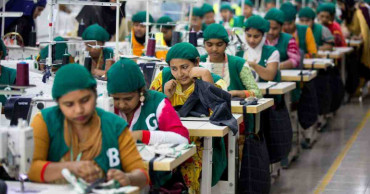global trade concessions
Bangladesh prepares to face challenges after transition from LDC
Bangladesh is focusing on bilateral free and preferential trade deals as a strategy to overcome the possible losses of global trade concessions after its graduation to a developing economy.
Studies on the feasibility of signing Free Trade Agreements (FTAs) and Preferential Trade Agreements (PTAs) with a number of countries have been completed, according to an official document.
Read:TRIPS transition period for LDCs extended by 13 years
The countries and organisations include Malaysia, Vietnam, Thailand, Japan and Eurasian Economic Commission.
The possibility of Bangladesh signing such trade agreements with China, Myanmar, Nigeria, Mali, Macedonia, Mauritius, Jordan, USA, Iraq and Lebanon is also being explored.
Meanwhile, a Comprehensive Economic Partnership Agreement (CEPA) between Bangladesh and India is also on the anvil.
Bangladesh Foreign Trade Institute (BFTI) and Indian Foreign Trade Institute are preparing a report on a joint study on CEPA.
Read Dhaka-Beijing ties can be prime mover for Bangladesh’s transformation: Debapriya
The CEPA is a bit different from FTAs as it covers a lot of issues such as trade in goods and services, investment, intellectual property rights and e-commerce.
Bangladesh has signed a bilateral PTA with Bhutan on December 6, 2020. Under the agreement, 34 Bhutanese products will get duty-free access to the Bangladeshi market and 100 Bangladesh products to get similar access to Bhutan.
The commodities from Bangladesh include baby clothes and clothing accessories, men's trousers and shorts, jackets and blazers, jute and jute goods, leather and leather goods, dry cell battery, fan, watch, potato, condensed milk, cement, toothbrush, plywood, particle board, mineral and carbonated water, green tea, orange juice, pineapple juice, and guava juice.
Read:Dhaka seeks incentive-based package for sustainable graduation of LDCs
The 34 products from Bhutan that will get duty-free access to the Bangladesh market include orange, apple, ginger, fruit juice, milk, natural honey, wheat flour, homogenised preparations of jams, fruit jellies, marmalades, food preparations of soybeans, mineral water, wheat bran, quartzite, cement clinker, limestone, wooden particle boards, and wooden furniture.
Both the countries will be able to increase the number of items gradually through consultation.
PTA negotiations with Nepal are at the final stage.
Read BGMEA discusses export, FDI opportunities with Bangladesh envoy
4 years ago

